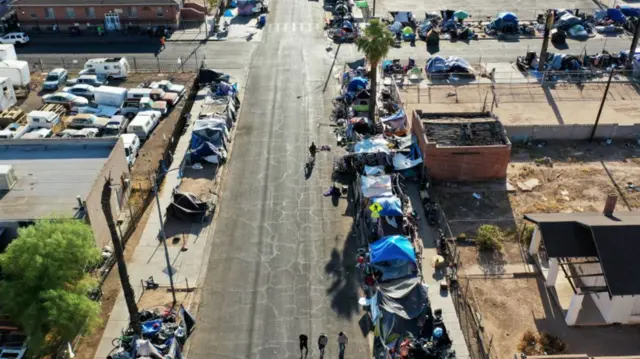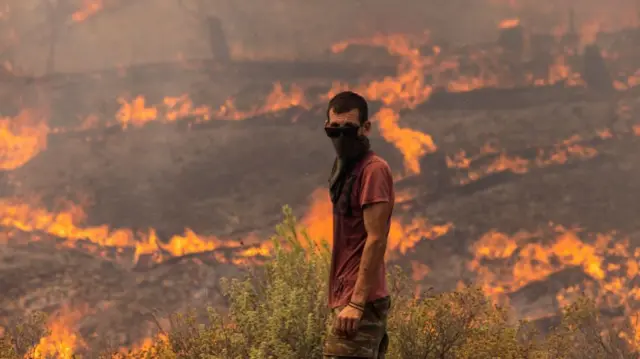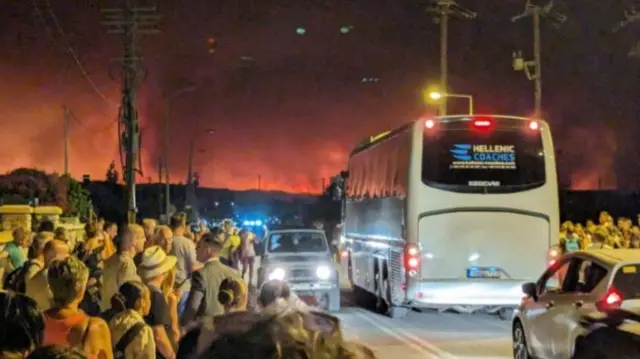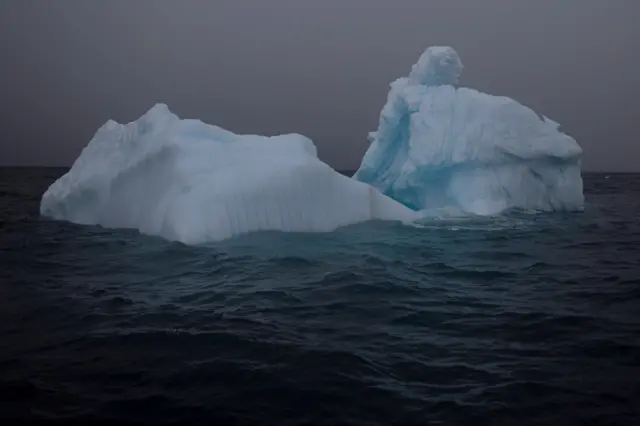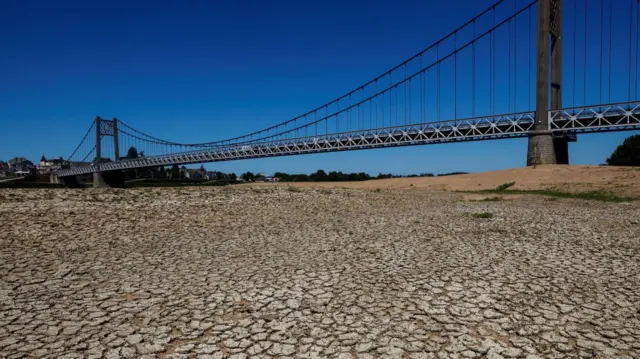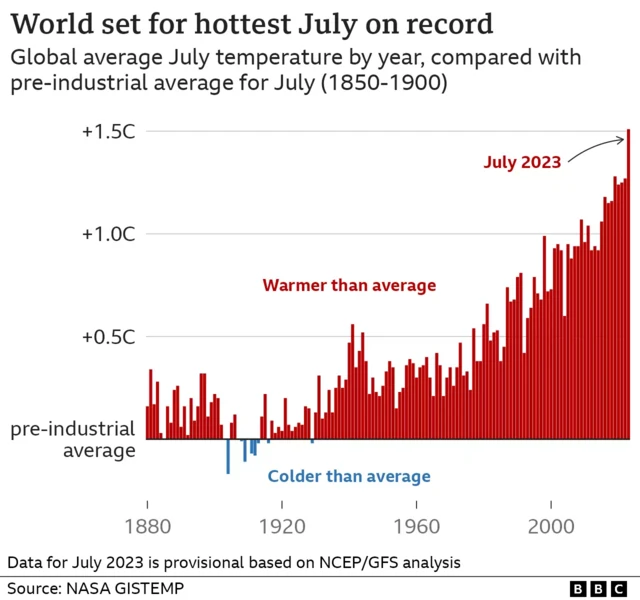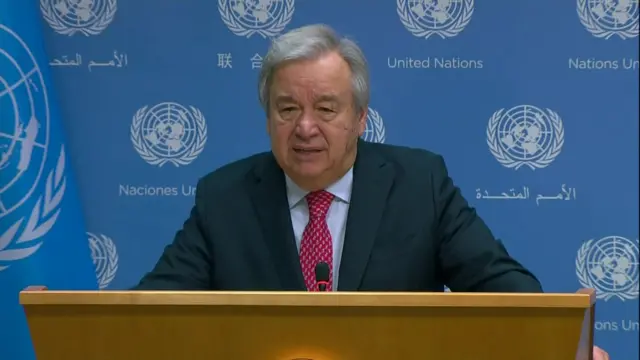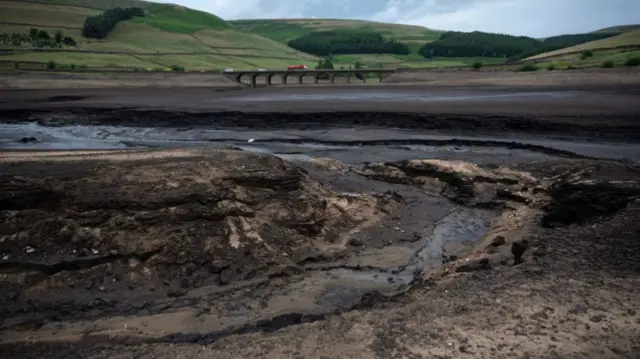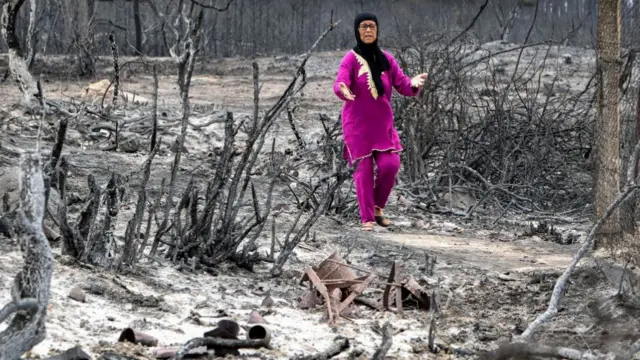Who measures when the hottest month is?published at 16:19 BST 27 July 2023
Scientists say July is set to be hottest month on record, with different regions around the world dealing with extreme temperatures.
But where does this information come from?
This information comes from the Copernicus Climate Change Service, also known as C3S.
It is an independent intergovernmental organisation that is funded by the EU to support its members with climate information.
It uses data from satellites and weather stations.
Its findings are also reflected in the work of the World Meteorological Organization, which is run by the United Nations.
In collates information from C3S and five other international datasets as part of its climate monitoring activities.
